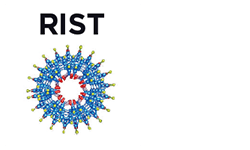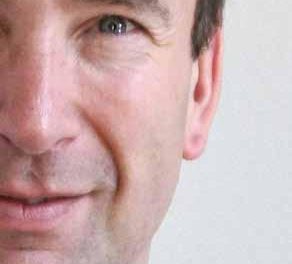Dynamic mapping of expertise
To provide an overview of expertise as it is put into practice in the organization, based on our framework of roles and behaviours. To analyze the meaning of the changes desired by the organization and the experts, and the direction of current developments. Through this approach, to identify some of the management problems involving the experts and expertise.
Model projects: CNES, SAFRAN.
Implementation of a “Key Enabling Technologies” (KET) approach
KET is a concept proposed by the European Commission, referring to key scientific and technological sectors for Europe that are expected to drive many industrial sectors and to constitute major competitive advantages. RIST has adapted this concept to the micro business level and designed a set of methodologies around its application: what is a KET expert; how to form a KET team; how to define and operate a system of governance of KET portfolios; how to draw up KET roadmaps; how to manage resources; etc.
Model projects: CGG, CNES, SANOFI.
Subdividing strategic, scientific and technological activity into KETs
The idea is to divide activities up strategically by identifying the KETs based on definitions that are adjusted according to the partner, and on a typology deduced from RIST tools
Model projects: CNES, SANOFI
Setting up and facilitating a strategic shaker
Facilitate reflection at governance level with the aim of really shuffling the cards around the KET portfolios, taking into account changes in the environment, the scientific and technological roadmaps of the KET teams, the results obtained, and new perspectives.
Model projects: SANOFI.
Organization of experts’ scientific training
RIST offers innovative approaches, both to analyze needs and to devise original tools that match the realities of the scientific activity and the expertise (analysis of scientific and technological lags, risk management, method of strengthening barriers to entry, researcher schools, career management for scientists, etc.).
Model projects: CIRAD, INRIA, SANOFI.
Creation of a formative environment
It is recognized that each individual has their own way of learning, of building (or not) their own educational – and, more generally, life – projects, and of interacting with others. In a formative space, a concept developed by RIST in partnership with the University of Picardie, each individual can choose the learning approach most natural to them, while simultaneously benefiting from other approaches. For this purpose, the space proposes a range of tools to choose from (with no obligation to use all the tools) and each tool is sufficiently open and flexible to allow them to learn in different ways. Everyone can thus navigate in the space according to their preferred mode of learning, their wish to explore/exploit, and their way of envisioning themselves in the future and of building their professional project. This navigation is, to varying degrees, guided, organized, equipped with feedback loops, planned and finalized, depending on personal choice. This approach is particularly relevant for certain populations of experts or future experts. RIST moreover has many training modules for researchers and experts, which can be used in the composition of these spaces.
Model projects: SAFRAN, HERMES, LAGARDERE, DAUPHINE
Accelerated acquisition of expertise (AxPert ©)
This approach concerns the human ecosystems surrounding key experts leaving the organization, groups of potential that rapidly have to strengthen experts in order to create critical masses, or young people acting in certain fast-evolving sectors.
Career Self-Management Process for researchers and experts (CSMP)
Career guidance spread over two months, which is light but compelling, to strengthen an individual’s understanding of themselves and enable them to become more autonomous and pro-active. Many methods specifically related to the expert or researcher’s activity are applied here (individual roadmaps, development of scientific and technological networks, etc.).
Model projects: SANOFI, SAFRAN, HERMES, CNES.
Construction of individual and collective scientific and technological roadmaps
Development of scientific and technological networks for researchers and experts


